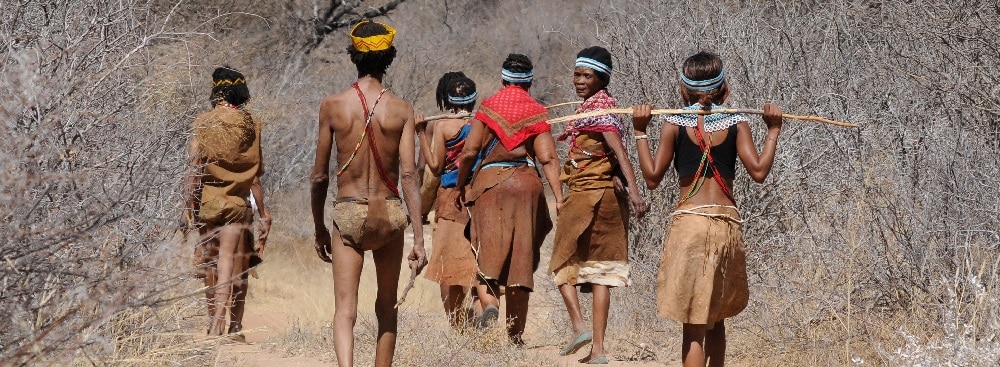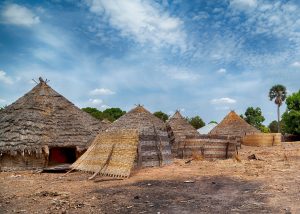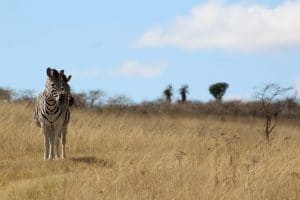Resource Africa is a key repository for and a ‘go to’ resource portal for information on regional CBRNM and sustainable use information. In collaboration with partner organisations, such as The Community-Based Natural Resource Management Network our website serves as an open access archive of current relevant published materials that affect CBNRM globally.
Please go to links below to read these publications in their original form.
Bauer et al. (2019) Race and gender bias in the research community on African lions _ Frontiers Ecology Evolution
Summary: We used bibliometric data to show that Black, African, and women researchers are underrepresented among authors of field studies on lions (Panthera leo) in Africa. This may lead to biased representation in institutions dealing with lion research and conservation and reinforce disenfranchisement with one of the most emblematic species in Africa. We discuss the causes, and ways for the lion research community to become more inclusive.
Challender et al (2019) Inadequacies in establishing CITES trade bans
Summary: There is little evidence that international trade bans are effective. Trade bans are ineffective because they fail to contend adequately with the economic, social and cultural complexity of wildlife trade, and how it changes over time, and for this reason it could be argued that international trade bans are predisposed to failure.
Coals et al. (2019) Ethics of human-animal relationships lions bred for bones _ Animals
Summary: In South Africa, lions are farmed, and a product of that farming is lion skeletons that form part of an international trade to supply traditional medicine markets in Southeast Asia with felid bones. As a matter of public policy, the practice is a complicated nexus of concerns for entrepreneurial freedom, wildlife conservation, and the fair treatment of animals. We used this case to demonstrate how public discourse about ethically-charged policies can be aided by a technique from the academic field of applied ethics, i.e., formal argument analysis. We showed how the technique can be integrated into existing frameworks for public decision-making. To further facilitate the application of this technique to other cases, we also offered ten general lessons for formal analysis of ethical arguments.
Summary: Two competing ideological approaches have emerged in African wildlife conservation: an exclusionary approach that is aligned with the, mostly Western, animal protection movement; and the inclusive human rights-based approach of many African governments, which reflects the opinions and rights of their citizens. The emergence of social media as a campaign
tool used by animal protection organisations reduces the ability of rural African citizens to engage with policy processes affecting their rights and strengthens the ability of misinformed western citizens to assume this role.
Miteva et al. (2012) Evaluation of biodiversity policy instruments – What works and what doesn_t
Summary: We review and confirm the claim that credible evaluations of common conservation instruments continue to be rare. The limited set of rigorous studies suggests that protected areas cause modest reductions in deforestation; however, the evidence base for payments for ecosystem services, decentralisation policies and other interventions is much weaker. Thus, we renew our urgent call for more evaluations from many more biodiversity-relevant locations. Specifically, we call for a programme of research—Conservation Evaluation 2.0—that seeks to measure how programme impacts vary by socio-political and bio-physical context, to track economic and environmental impacts jointly, to identify spatial spillover effects to untargeted areas, and to use theories of change to characterise causal mechanisms that can guide the collection of data and the interpretation of results. Only then can we usefully contribute to the debate over how to protect biodiversity in developing countries.
Mkono (2019) Neo colonialism and greed Africans views on trophy hunting in social media
Extract: Existing studies on the trophy hunting controversy in recent years have largely represented the anti-hunting views of the Western public, while overlooking the opinions of African people.
This study taps into Africans’ social media narratives to illuminate the racially, politically, and historically charged context in which trophy hunting occurs in Africa. Data were collected from the Facebook pages of three major social media players with a predominantly African follower-ship, namely, BBC News Africa, News24.com, and NewsDay-Zimbabwe.
The dominant pattern was resentment towards what was viewed as the neo-colonial character of trophy hunting, in the way it privileges Western elites in accessing Africa’s wildlife resources. However, the West’s passionate criticism of violence against animals was viewed by participants as overblown, and as evidence of their (Westerners) higher regard for animals than for African people.
Interestingly, trophy hunting was not objectionable from an animal rights perspective, but as a consequence of its complex historical and postcolonial associations. In addition, criticism was directed at African politicians who were perceived as allowing wildlife exploitation to satisfy their own greed. In this instance, far from tourism being a facilitator of intercultural understanding and peace, it appears to reproduce images and wounds of a colonial past.
Newing_Perram (2019) What do you know about conservation and human rights
Extract: Under what circumstances do you think it is morally acceptable to stop local communities from hunting for food inside a protected area? Or from gathering honey and wild herbs? Or practising traditional shifting agriculture? Is it acceptable to create a protected area on community lands without consultation or consent? What about forced displacement of local communities? Shoot-to-kill policies? All of these actions are reported to have been carried out in the name of conservation in recent years (e.g. Tauli Corpuz, Mogomotzi & Kefilwe. But how much is this simply a matter of moral discretion and how much is it governed by international human rights obligations?
Norton-Griffiths (2010) Growing involvement of foreign NGOs in setting policy agendas in Africa
Summary: Two case studies from Kenya demonstrate the malign impact on policy-making and political decision-making of foreign NGOs with single issue agendas. They gain acceptance for their minority views by using financial strength and access to economic and political elites in order to subvert what should be representative democratic processes.
Sandbrook et al. (2019) The global conservation movement is diverse but not divided
Extract: Should biodiversity be conserved for its own sake or because it provides benefits to people? Should nature have to pay its own way in the marketplace? Should people be displaced to make space for protected areas? For several years I have been studying the different ways in which conservationists think about such fundamental questions, how these ideas are shaped, and how they affect conservation practice. Recent debates between ‘new conservation’ and more traditional approaches have shown just how lively the resulting arguments can be.
About The Community-Based Natural Resource Management Network



